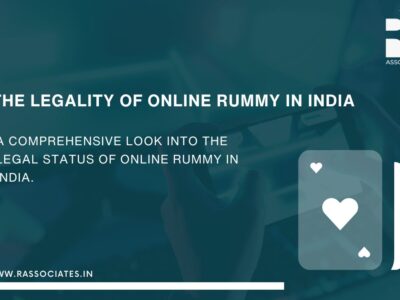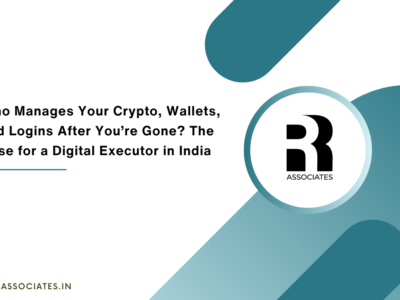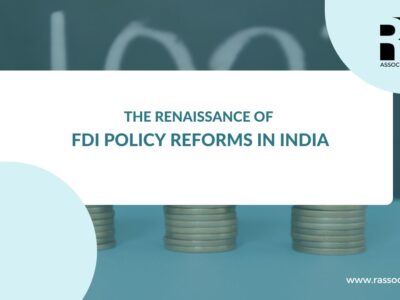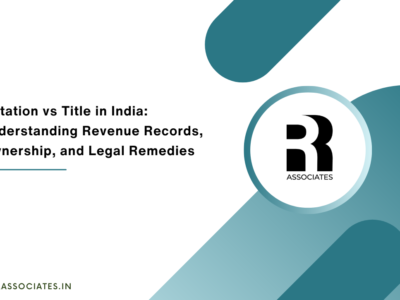
APTEL Tightens the Screws on Public Interest Litigation: Strict Locus Standi Now Mandatory in Electricity Matters
I. Introduction
The Appellate Tribunal for Electricity (“APTEL”) reaffirmed in its April 8, 2025 judgment that public interest organizations must comply with stringent statutory locus standi criteria under the Electricity Act, 2003 (“Act”) when challenging regulatory orders. Mere altruistic intent does not equate to legal standing.
This analysis assesses APTEL’s ruling—its legal reasoning, statutory underpinnings, and broader implications for public-interest litigation in the power sector.
II. Statutory & Regulatory Framework
- Section 2(15) defines “consumer” as any person supplied electricity for his own use.
- Section 111 permits appeals before APTEL by “any person aggrieved” by orders of Appropriate Commissions.
- The CERC/State ERC Conduct of Business Regulations often allow consumer representation but require formal legal standing, not just goodwill.
Section 111’s qualifier—“aggrieved”—imposes both legal injury and direct effect requirements.
III. Facts: Review by Surat Citizens Council Trust
- APTEL had earlier dismissed Appeal No 341 of 2017, where the Surat Citizens Council Trust challenged tariff orders by GERC, alleging broad public harm.
- The Trust was not a direct consumer and lacked mandates in its object clause to represent tariff payers.
- The Trust periodically obtained RTI information and audit data, but did not hold consumer status.
It approached APTEL via a review petition, invoking public interest and systemic grievances—a plea the Tribunal firmly rejected.
IV. APTEL’s Legal Findings
- Strict Statutory Standing: Under Section 2(15), absence of consumer status meant the Trust was not “aggrieved” under Section 111.
- No Representative Authority: Its governing documents included no mandate to represent affected consumers.
- No Direct Injury: Lacked evidence showing tariff harm, either personal or through members.
- Public Interest Alone Insufficient: Motivations, however noble, cannot replace statutory prerequisites.
- Inadmissible Review Relief: Review petitions cannot re-litigate merits beyond correcting “error apparent on face.” The Trust’s new submissions were too late and not ground for review.
V. Judicial Reasoning: Public Interest vs. Legal Standing
APTEL drew a clear distinction between:
- Abstract or derivative harm, which is inadmissible; and
- Concrete, direct legal injury, which satisfies locus standi.
The Tribunal cited precedent from both electricity law and general administrative law to clarify that mere public spiritedness cannot override statutory architecture. In particular, it relied on the legal position in:
- Jasbhai Motibhai Desai v. Roshan Kumar, (1976) 1 SCC 671 – wherein the Supreme Court rejected “busybody” litigants lacking direct grievance.
- PTC India Ltd. v. CERC, (2010) 4 SCC 603 – which defined the scope of regulatory jurisdiction and clarified statutory appellate paths under the Electricity Act.
The ruling squarely rejected the notion that public interest is a standalone ground for approaching APTEL without complying with the substantive requirements of the Act.
VI. Procedural Takeaways
The Tribunal provided guidance for public interest groups wishing to approach electricity tribunals:
- Object Clause Alignment: The organization’s charter must show a clear mandate to represent electricity consumers or affected stakeholders.
- Proof of Injury or Representation: Entities must demonstrate:
- A direct relationship to the impugned order; or
- Authorization from identified consumer groups.
- A direct relationship to the impugned order; or
- Participatory Prerequisite: Participation in the original regulatory proceedings before the SERC or CERC is essential. Post-facto intervention is rarely permitted.
- No Collateral Appeals: Entities cannot repackage generalized grievances to reopen decisions already adjudicated.
This procedural discipline preserves the limited judicial bandwidth of APTEL for truly aggrieved persons, ensuring that regulatory stability is not undermined by unvetted interventions.
VII. Policy Context: Rise in NGO and Trust Interventions
In recent years, several NGOs, citizen forums, and local trusts have begun using the Electricity Act’s appeal provisions to challenge tariff orders, PPAs, and procurement guidelines—often citing environmental or public affordability concerns.
While such interventions can add valuable perspective, APTEL’s ruling underscores that such efforts must be institutionally disciplined. Courts and tribunals cannot act as policy forums or oversight bodies unless approached by legally competent persons or groups.
VIII. Impact on Public Interest Litigation in the Power Sector
The APTEL judgment will likely curb indiscriminate filing of appeals and reviews by public interest organizations that do not meet the minimum statutory thresholds. Key implications include:
a) Enhanced Gatekeeping
Electricity sector regulators and tribunals will adopt a stricter filter while examining the maintainability of petitions filed in the name of public interest. This ensures judicial economy, reduces backlog, and preserves the integrity of sectoral adjudication.
b) Higher Compliance Burden on NGOs
Organizations seeking to represent consumer interests in tariff matters must now align their incorporation documents, obtain mandates from affected groups, and demonstrate direct or representative standing. Casual or peripheral involvement will no longer suffice.
c) Clarity on Review Jurisdiction
The judgment also clarifies the limited scope of review under APTEL’s procedural rules. Review petitions are not a substitute for appeal, and any attempt to reopen findings without pointing to an evident error or omission will be summarily dismissed.
d) Sectoral Certainty
The ruling stabilizes regulatory processes in the electricity sector by preventing ad hoc disruption of commission decisions via loosely framed PIL-type reviews. This is especially important in tariff fixation and grid planning, where long-term investments depend on regulatory predictability.
IX. Comparative Jurisprudence
The Tribunal’s approach aligns with the principles upheld in:
- Janata Dal v. H.S. Chowdhary, (1992) 4 SCC 305 – holding that “public interest litigation is not a license for irresponsible litigation”.
- Ashok Kumar Pandey v. State of West Bengal, (2004) 3 SCC 349 – where the Supreme Court cautioned against abuse of PIL to serve personal or political ends.
The power sector’s regulatory adjudication thus continues to follow the broader judicial movement toward structured, merit-based public litigation, discouraging speculative or ideologically motivated filings.
Conclusion
The April 2025 decision of APTEL in the Surat Citizens Council Trust matter marks a pivotal clarification in the domain of regulatory litigation. While it does not exclude public interest entities altogether, it mandates rigorous compliance with statutory locus standi.
This ruling preserves the integrity of the appellate framework under the Electricity Act, 2003 by ensuring that only persons with direct legal grievance or properly authorized representation may invoke appellate jurisdiction. In doing so, APTEL has drawn a necessary and constitutionally valid line between participatory governance and judicial intervention.
Going forward, electricity regulatory litigation in India will need to reflect structured advocacy, institutional mandate, and demonstrable harm—lest it be struck down at the threshold.
APTEL – Surat Citizens Council Trust (Review Petition No. 1 of 2025 in Appeal No. 341 of 2017) – https://aptel.gov.in/sites/default/files/2025-04/RP%201%20of%202025%20.pdf?
Jasbhai Motibhai Desai v. Roshan Kumar, Haji Bashir Ahmed & Ors. (1975) – https://indiankanoon.org/doc/1749406/




